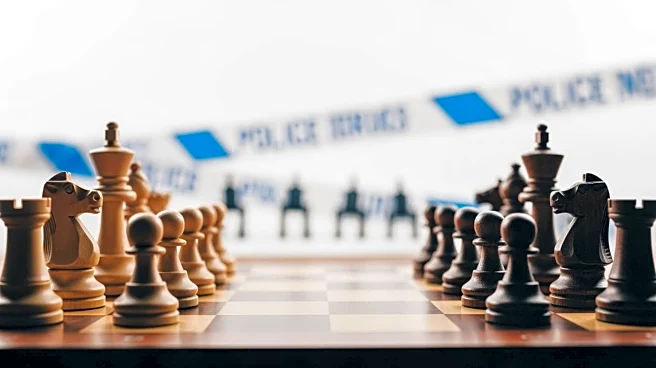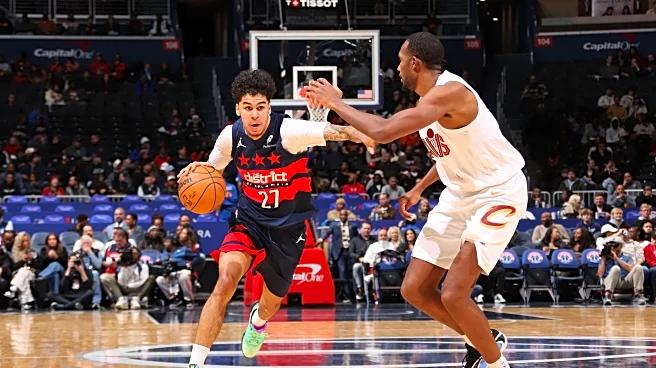What's Happening?
The International Chess Federation is investigating former world chess champion Vladimir Kramnik for his persistent allegations of cheating against U.S. chess grandmaster Daniel Naroditsky. Naroditsky,
who passed away recently, had been accused by Kramnik of cheating in online chess games, claims which Naroditsky vehemently denied. The accusations reportedly caused significant distress to Naroditsky, as stated by his mother, Elena Naroditsky. The Federation's Ethics and Disciplinary Commission is reviewing Kramnik's public statements to determine if they constitute harassment or bullying. The investigation follows criticism from other grandmasters who have condemned Kramnik's conduct, suggesting it was an attempt to tarnish Naroditsky's reputation.
Why It's Important?
This investigation highlights the serious implications of unfounded accusations within the competitive chess community, potentially affecting the mental health and reputation of players. The outcome could set a precedent for how such disputes are handled in the future, emphasizing the importance of maintaining integrity and respect in professional sports. The chess community, particularly in the U.S., may see changes in how allegations are addressed, ensuring players are protected from baseless claims. The Federation's actions could influence public perception and trust in the sport, impacting its growth and the careers of emerging players.
What's Next?
The International Chess Federation is expected to conclude its investigation and decide on any disciplinary actions against Kramnik. If found guilty of harassment, Kramnik could face sanctions under the Federation's anti-cheating laws. The decision may prompt discussions within the chess community about the need for clearer guidelines and support systems for players facing similar situations. Stakeholders, including chess organizations and players, might advocate for reforms to prevent such incidents and protect the integrity of the sport.
Beyond the Headlines
The case raises ethical questions about the responsibilities of public figures in sports to avoid damaging others' reputations without evidence. It also underscores the potential psychological impact of public disputes on individuals, highlighting the need for mental health support in competitive environments. Long-term, this could lead to cultural shifts within the chess community, promoting a more supportive and respectful atmosphere.











